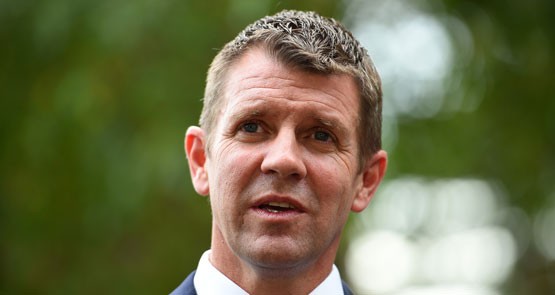
Australia’s major political parties earned more than $170 million in donations in 2014-15, well down on the 2013-14 election year, as federal politics took a back seat to hard-fought state election campaigns, the annual release of political donation and party finance data by the Australian Electoral Commission shows.
The Liberals, state and federally, earned just over $58 million; the Liberal National Party another $18.4 million and the National $11 million. Labor’s branches jointly were given just under $65 million, while the Greens’ branches earned $8.5 million.
The NSW, Victoria and Queensland branches were the big earners for all the parties as they chased donations ahead of election campaigns and received public funding afterward. In NSW, the Liberal Party earned over $20 million from donations and public funding, while the Victorian Liberals earned nearly $22 million. All spent up big on election campaigns: the NSW Liberals spent just under $20 million securing a strong victory for Mike Baird, while the Victorian Liberals spent over $24 million losing to Daniel Andrews; Campbell Newman’s party spent nearly $20 million gambling and losing on a January election.
Those in Victorian Labor can pat themselves on the back: while the branch earned considerably less than their opponents — just over $14 million — they only spent $15 million and claimed government. Similarly, Queensland Labor spent far less than Newman’s LNP — just $13.8 million — and emerged not merely with government but with a sizeable surplus (it had debts of just $210,000).
In NSW, it was a different story. Labor threw everything but the kitchen sink at Mike Baird in an election it was never going to win. NSW Labor spent $19.7 million, nearly the same as the Liberals, while earning only $17.5 million (the NSW Libs were helped by an $8 million spend by the Nationals).
As always, however, we’re only seeing part of the story. The source of just 63% of the total revenue earned by the major political parties can be identified from their returns to the Australian Electoral Commission. This “credibility gap” is affected by vagaries such as whether branches include the public funding they receive, but the Liberal Party collectively is the least transparent: less than 60% of its revenue can be identified from its returns, reflecting its policy of only reporting donations of above the reportable threshold of $13,000. And only 42% of the LNP’s funding sources can be identified. Labor, collectively, achieves a 73% identification rate (most of its branches report donations down to $1000), although smaller branches like South Australian and Western Australian Labor, like their conservative and Greens counterparts, all have low identification rates.
But when it comes to transparency, as well as massive donations, Clive Palmer is head and shoulders above everyone else. The Palmer United Party earned just over $10 million in 2014-15 — every cent of it from Palmer’s companies. The near-terminal Queensland Nickel coughed up a remarkable $2.9 million in March to the PUP while circling the gurgler, in addition to a total of over $3 million via 455 separate donations, some as little as $2, across the rest of the year. Palmer’s company Mineralogy donated over $3.6 million to the PUP as well. And as Palmer has reported every single donation — including the $2 ones — he’s 100% for revenue and sources of revenue.
Federally, because the preceding year was an election year, the numbers are hard to interpret, but unusually, the ALP out-raised the Liberals, and not just by a little — federal Labor raised $9 million compared to the Liberals’ $6 million — the lowest annual return for the federal Liberals since the dark days of Brendan Nelson and Malcolm Turnbull (and the GFC) in 2008-09. This suggests anecdotes and rumours circulating at the time that Tony Abbott’s disastrous prime ministership was seriously damaging the Liberals’ fundraising capacity were true.
And Victorian Liberals and the LNP can probably also thank Abbott for helping them to waste, together, over $40 million trying and failing to re-elect first-term governments that should never have been in trouble in the first place.








Modern technology makes it quite simple for all political parties and their branches bank accounts to be made public showing recipients and donors immediately money is paid in or out. The only reason for delay is a contrived lack of transparency or even deliberate deception of voters. Financial transparency of donors to all parties and candidates is essential for honest democratic government. Voters need to know who politicians are beholden to.
They don’t want us knowing who they’re governing for.
We can either have public funding of politics or a free-for-all.
To attempt to have both is risible.
Nice touch. Queensland Libs designated as “Campbell Newman’s party”.